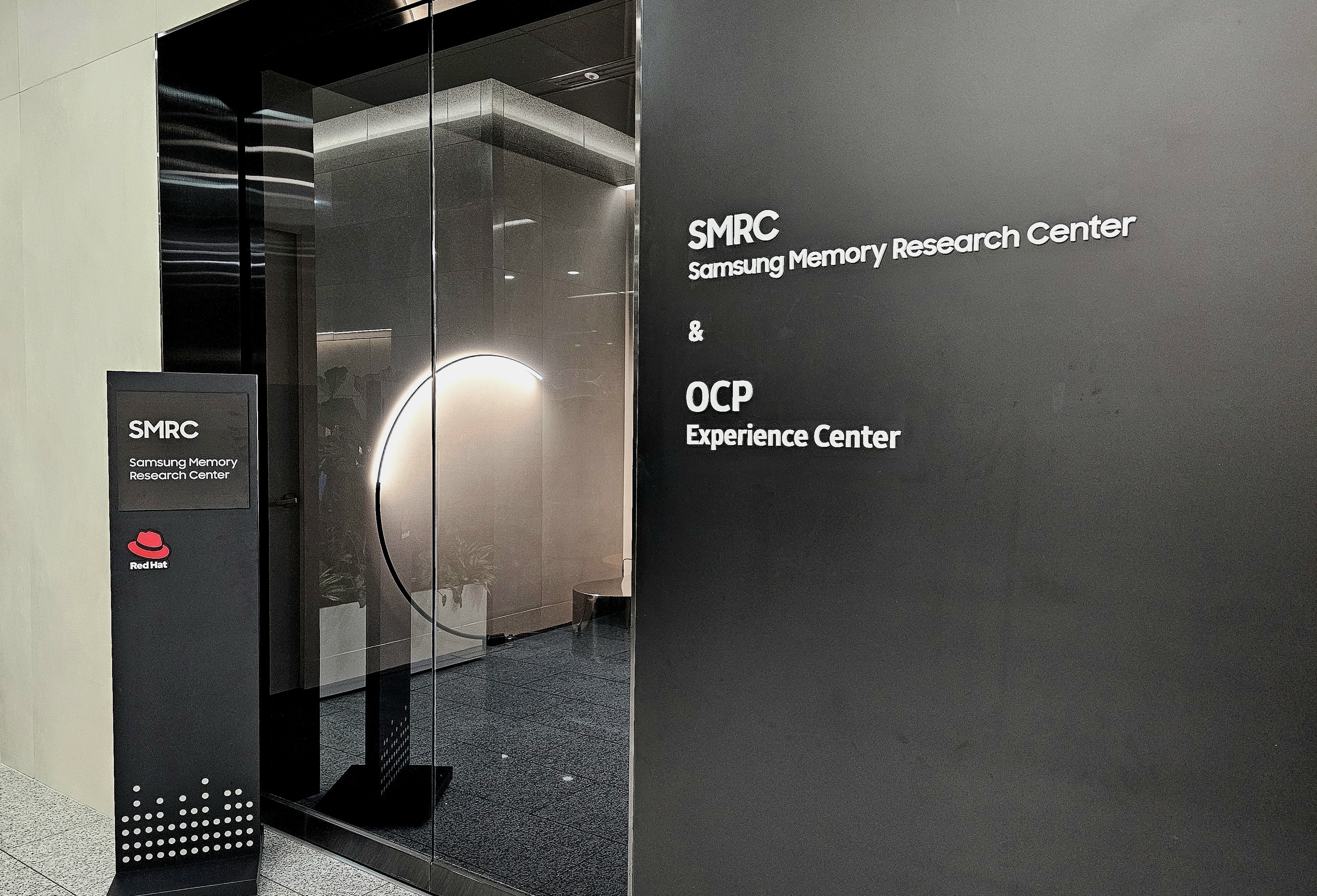 INFRA
INFRA
 INFRA
INFRA
 INFRA
INFRA
Samsung Electronics Co. Ltd. said Wednesday it has achieved a key milestone after successfully verifying its Compute Express Link memory technology works as expected in a real user environment with the open-source software company Red Hat Inc.
According to the chipmaker, advances in generative artificial intelligence, autonomous driving and in-memory databases mean that data center operators face increased requirements around data throughput and memory. As a result, there’s significant demand for greater memory bandwidth as well as the ability to grow.
Samsung’s CXL memory tech is designed to fix these bandwidth limitations, which impact the speed, latency and expandability of data throughput. CXL is a unified interface standard that was first outlined by the CXL Consortium in 2019. The technology is used to connect various computer chips and memory devices through a PCIe interface at lower latencies and faster speeds than before. In this way, it can help existing data centers to get up to speed at lower costs.
According to Yongcheol Bae, executive vice president of Memory Product Planning at Samsung, the partnership with Red Hat is an “exemplary case” of collaboration between advanced hardware and software providers. He added that the collaboration will “enrich and accelerate” the CXL ecosystem significantly.
Samsung said it optimized its CXL memory tech was optimized for Red Hat’s Enterprise Linux 9.3 software. The tests verified its memory recognition, read and write operations within Red Hat’s kernel-based Virtual Machine and Podman environments.
The two companies are now working together to create a RHEL 9.3 CXL Memory Enabling Guide that will help customers to use Samsung’s CXL memory products on RHEL 9.3 in order to build higher performance computing systems. They’ll offer support for CXL through the Samsung Memory Research Center, which was formed last year and is working on the development of open-source reference models for the technology. The partnership with Red Hat covers multiple memory and storage products, including CXL, NVMe solid-state drives, computational memory and storage and data fabrics.
Marjet Andriesse, Red Hat’s senior vice president and head of Asia Pacific, said the announcement is “an important milestone in the integration of hardware and software to build an open-source ecosystem for next-generation memory development.” According to her, the move is significant because it enables Samsung’s CXL memory expander to be used with Red Hat’s infrastructure-as-a-service and platform-as-a-service products.
Although Samsung is at the forefront of CXL development, the technology was first developed by Intel Corp. However, Samsung was the first company in the world to launch a memory module supporting the latest CXL 3.0 interconnect standard in mid-2021, which is based on more advanced PCIe 6.0.
The market research firm Yole Group values the global CXL market at just $14 million but says it’s likely to grow to more than $16 billion in 2028, driven by the commercial rollout of CXL 2.0 late next year.
Support our mission to keep content open and free by engaging with theCUBE community. Join theCUBE’s Alumni Trust Network, where technology leaders connect, share intelligence and create opportunities.
Founded by tech visionaries John Furrier and Dave Vellante, SiliconANGLE Media has built a dynamic ecosystem of industry-leading digital media brands that reach 15+ million elite tech professionals. Our new proprietary theCUBE AI Video Cloud is breaking ground in audience interaction, leveraging theCUBEai.com neural network to help technology companies make data-driven decisions and stay at the forefront of industry conversations.